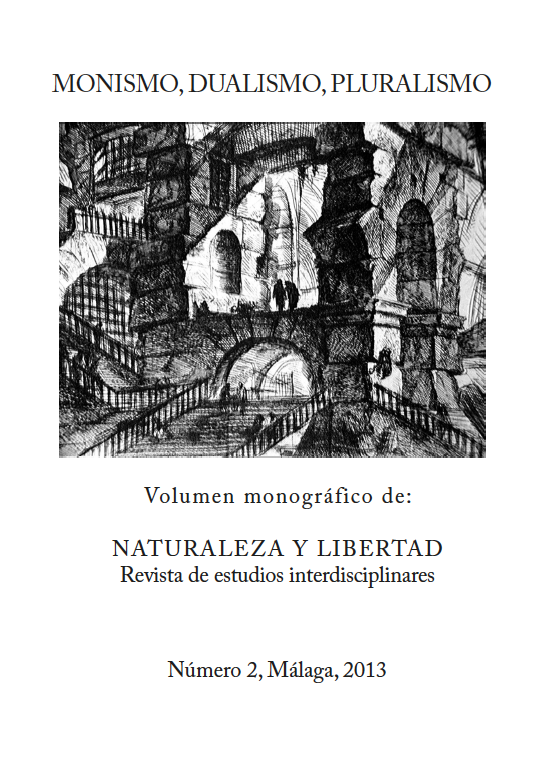Monismo y reduccionismo epistemologico: Una revisión desde la unidad/pluralidad aristotélica
DOI:
https://doi.org/10.24310/nyl.v2i1.3997Keywords:
Monismo, pluralismo, reduccionismo, unidad, pluralidad,Abstract
Resumen: El monismo destaca en la historia del pensamiento como una propuesta integradora, de sencilla lectura y de resultado eficaz. El pluralismo, en cambio, apuesta por obligar a la mente a que ante la multiplicidad disímbola, se halle un hilo conductor. Así pues, al monismo se le achaca su estrechez de miras, mientras que al pluralismo se le exige encontrar vínculos reales, que de no existir, nos harían renunciar a la realidad. Ambas posturas son deudoras del reduccionismo, que va tras la realidad sencilla, coherente e ínter subjetiva. Una zona franca con la que el intelecto suele avenirse con facilidad. En este texto se hace una valoración crítica del reduccionismo a partir de las intuiciones aristotélicas sobre la unidad y la pluralidad, con la intención de encontrar algún sustituto útil al monismo y al pluralismo, que nos lleve a conocer lo que de verdad hay en la cosas y no sólo sus avatares múltiples o unitarios.
Palabras clave: Monismo, pluralismo, reduccionismo, unidad, pluralidad.
Abstract: The philosophical proposal of monism tries to obtain a knowledge according to a simplistic and uncomplex reading of the reality. In the opposite side, the pluralism forces to human mind to find relationship among the different elements of the reality. The both, monism and pluralism, depends on reductionism. In this text is discussed its limits and risks, based on aristotelian point of view about the unity and plurality, trying to go beyond the monistic and pluralistic positions.
Key words: Monism, pluralism, reductionism, unity, plurality.
Recibido. 01/12/2012 Aprobado: 18/04/2013
Downloads
Metrics
Downloads
Published
How to Cite
Issue
Section
License
Those authors who have publications with this journal, accept the following terms:
1. Copyright and licensing information are clearly described on the journal’s web site: all content published in Naturaleza y Libertad is open acces without limit, and are subject to the Attribution-NonCommercial-ShareAlike 4.0 International (CC BY-NC-SA 4.0) license. The full text of which can be consulted at https://creativecommons.org/licenses/by-nc-sa/4.0/
2. It is the responsibility of the authors to obtain the necessary permissions for the images that are subject to copyright. The authors whose contributions are accepted for publication in this journal will retain the non-exclusive right to use their contributions for academic, research and educational purposes, including self-archiving or deposit in open access repositories of any kind. The electronic edition of this magazine is edited by the Editorial de la University of Malaga (UmaEditorial), being necessary to cite the origin in any partial or total reproduction.
3. This journal allows and encourages authors to publish papers on their personal websites or in institutional repositories, both before and after their publication in this journal, as long as they provide bibliographic information that accredits, if applicable, your posting on it.
4. In no case will anonymous papers be published.





18.png)













